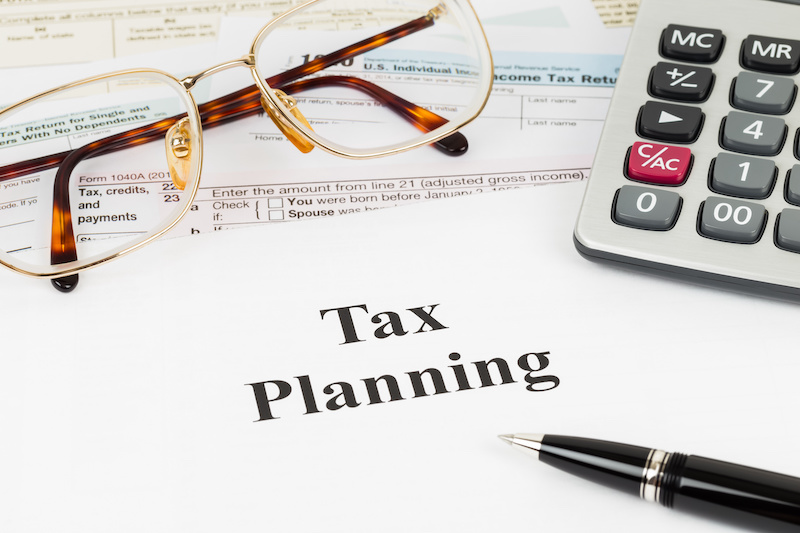What is Retirement Planning?
by Gabriel Lewit

Retirement planning is an important financial process for many people and can be overwhelming if you don’t have the right guidance. Whether you are saving for retirement, already retired, or somewhere in between, it’s crucial to have a comprehensive plan that can help you pursue financial security now and in the future.
In this blog post, we explore what retirement planning is all about, including key topics such as understanding your budget and investing options. As experienced retirement advisors on retirement planning matters, our goal is to provide you with helpful information so you can take control of their future finances. Read on to learn more about the retirement planning process.
Searching for retirement planning near you? The SGL financial advisors in Buffalo Grove have you covered. Check out our eBook on retirement planning.
What is Retirement Planning?

Retirement planning is the process of creating a financial plan and investment strategy tailored around your specific retirement goals. It’s important to begin retirement planning as early as possible so you can maximize your retirement savings
efforts. This can include contributing to a company-sponsored retirement account, such as a 401(k) retirement plan, calculating your retirement income needs, and creating a budget aligned with retirement goals.
Another important part of retirement planning is investing wisely so that your retirement savings perform optimally over time. Retirement planning involves careful analysis, understanding economic markets, and developing strategies to manage your personal risk tolerance. Retirement planning can help you pursue your financial security for years to come.
How Much Retirement Savings Do You Need?
The retirement savings needed for retirement greatly varies depending on numerous factors such as:
- When you retire (your retirement age)
- Your current lifestyle and spending levels
- Your expected lifestyle preferences in retirement
- Your health
- Where you plan on retiring (location)

A conservative estimate is to have retirement savings equal to 10-12 times your annual salary before retirement, assuming you do not have pensions from employers or the government. However, remember that the income you will need will be heavily influenced by the lifestyle you plan to live once you retire.
Additionally, it is advisable to save as much as you can over the years – retirement may not come when originally planned due to unforeseen events, so the more retirement savings that are available means increased financial security during retirement years.
Of course, many other factors must be considered when planning for retirement, including budgeting requirements, asset allocation, and proper estate planning. No matter what stage of life you are at, you should continuously consider how much money you will need and plan ahead to secure your retirement.
Which Retirement Account is Right For Me?
When preparing for retirement, deciding which retirement account to open is critical in establishing your financial future. Do your research and consider a range of options. For example, traditional IRAs, Roth IRAs, and 401(k) plans each have distinct tax advantages that can lighten the burden on your paycheck now or significantly reduce taxes at retirement – depending on the plan.
Understand the differences between various account types, including the advantages and disadvantages of each, specifically regarding tax implications. Regardless of how much you save, it will be of little significance if you pay unnecessarily large amounts in taxes due to poor tax planning.
Understanding the nuances is important, as each option has its stipulations. Explore government-backed programs and employer benefits. Consider using the services of an experienced financial professional for personalized advice based on your individual needs and goals.
Taking the Right Steps Once You Begin Saving for Retirement

It’s important to remember how inflation and fluctuating rates of return can affect your investments and purchasing power down the road. Making sure to re-evaluate and occasionally adjust your strategy may help protect you from any negative outcomes related to changing economic conditions. A well-structured plan might look like this:
- Getting an idea of the lifestyle you want to live once you retire (travel, potential part-time work, seeing family, etc.)
- Developing a budget based on the lifestyle you intend to live in retirement
- Finding the right retirement accounts for your situation and working with your financial planner to implement specific investment and tax planning strategies
- Semi-regularly checking up on your accounts to review your progress in relation to pursuing your goals and making any necessary adjustments, as appropriate
Retirement planning will differ for everyone since everyone will have varying financial situations and goals. Regardless of your financial standing and what you are planning for, starting to plan as early as possible is crucial for meeting your financial goals.
Bottom Line
Retirement planning has some of the most important financial decisions you can make. Having a plan in place will help you pursue a comfortable, affordable retirement. As you begin to think about retirement planning, remember that it is never too early or late to start investing. Take the time to review your personal finances, assess your goals, and consider your current income situation.
With the right strategy and focus, you can create a retirement plan that addresses how you will live your retirement years with financial security. If you are looking for retirement planning services in Buffalo Grove, contact one of the experienced retirement planning advisors at SGL today.

